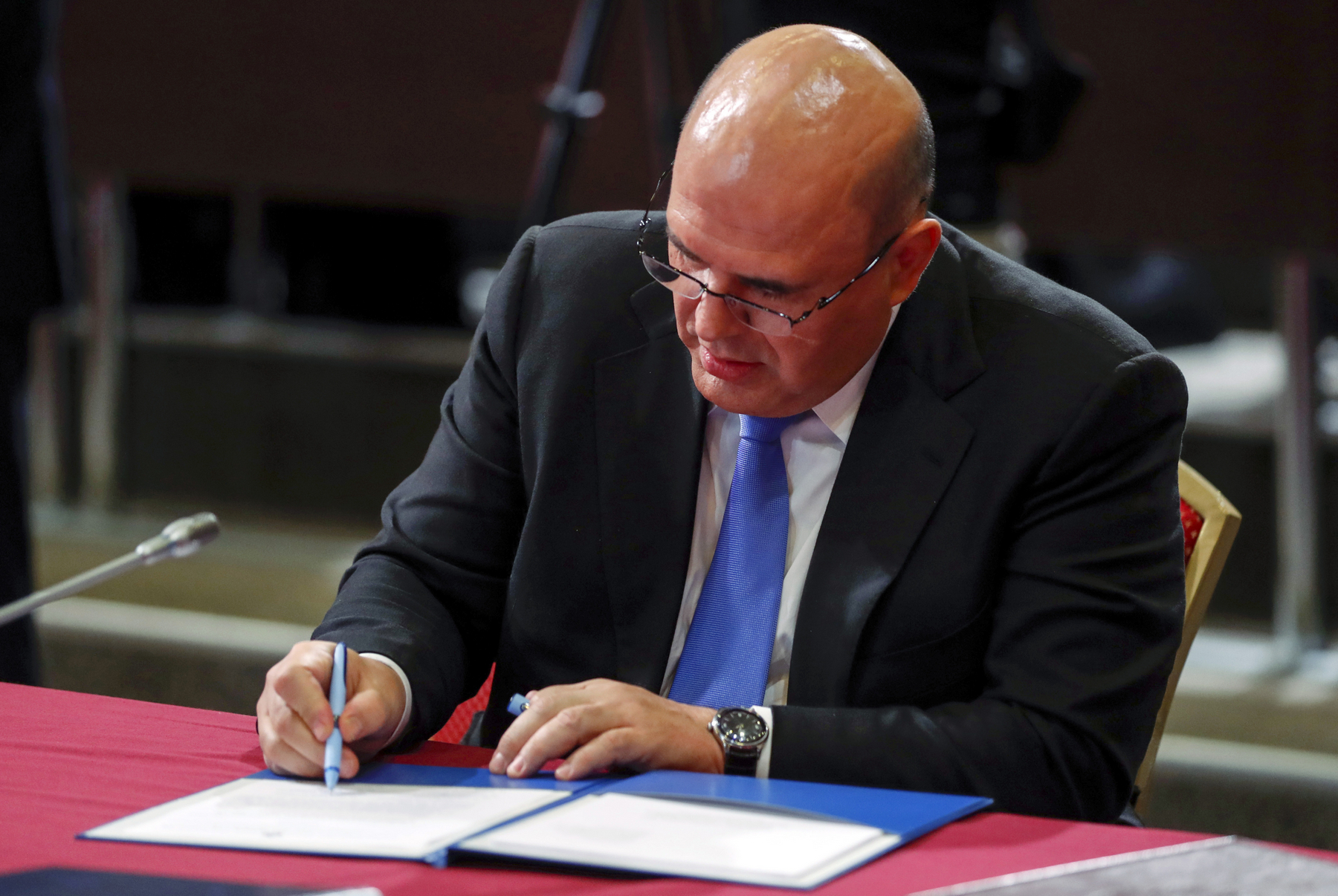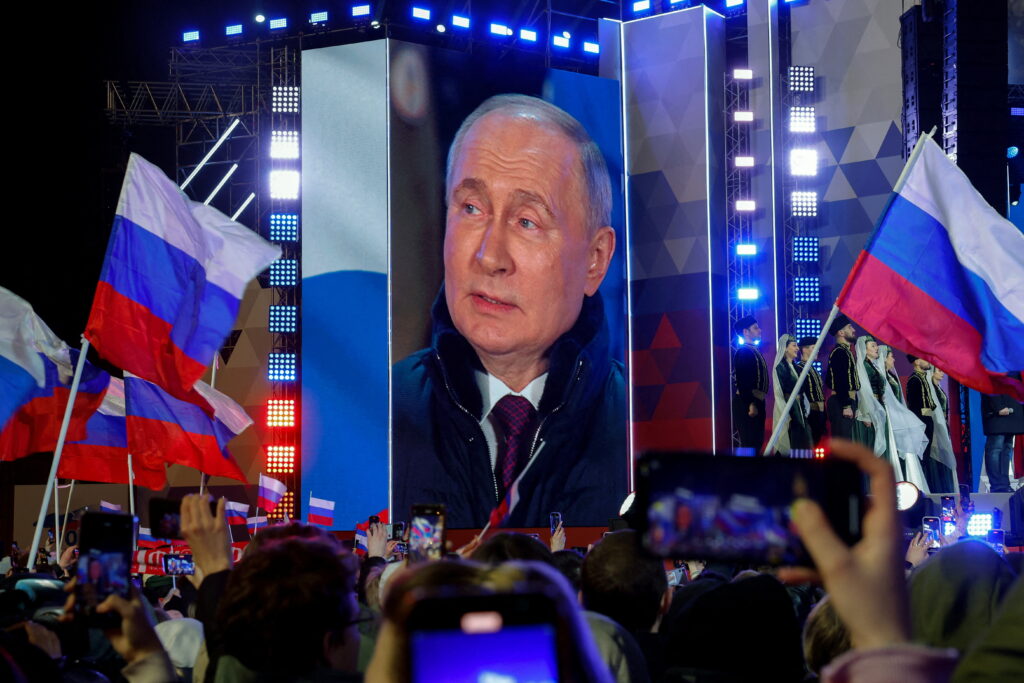One of the foreseeable characteristics of the evolution of the political regime in Russia is the increasingly limited access to information. The Russian government formally proclaimed the concept of open government, but this happened back in early 2014; in fact, it was a different era before the systemic confrontation with the outside world and Western sanctions. ‘Open Government’, an ambitious project endorsed by former Prime Minister Dmitry Medvedev, lasted a few more years and was discontinued in 2018, leaving behind a modest legacy, while the Minister for Open Government Affairs, Mikhail Abyzov, has been under arrest since 2019 on charges of fraud.
Of course, the Russian state cannot lag behind the global trend towards general transparency. Therefore, even in an authoritarian regime, top civil officials still publish annual, albeit not very informative, declarations of assets and income. Online communication and social media make it easy for the state to spy on its citizens, but the opposite is also true: citizens can follow officials on a regular basis. A favourite technique of Alexei Navalny and his team of investigators, for example, is to analyse personal photos from social media, which they use to judge whether or not a particular official is corrupt. Finally, the official tendency towards growing information sensitivity is coupled with the vast black market for data in Russia (including leaked state-administered databases with personal information), where one can even buy data compromising secret intelligence officers.
It is normal for state secrets to be centred around defence and security – this is characteristic of all countries to varying degrees. This has been the case in Russia since the early 1990s. However, during Vladimir Putin’s presidency and especially since 2014, the tendency to classify data has expanded beyond traditional security spheres and continues to take hold in civilian fields. This predictably correlates with a crackdown on independent media and civic activists, an aggressive monopoly on propaganda in official discourse and increasing restrictions on freedom of speech.
Response to external threats
Since 2014, Russia has taken a turn towards information secrecy as a response to pressure from abroad. In 2015, journalists revealed that the Russian authorities had classified a list of the state’s foreign assets ‘due to the unfriendly policies of a number of countries’. This came amid a hunt by ex-shareholders of the bankrupt Yukos oil company who claimed Russian sovereign property as part of their attempts to enforce a $50 billion international arbitration award. While the logic behind this move by the Russian authorities is understandable – to protect state assets abroad – the flipside is always unaccountability and corruption risks. The government has also classified procurement by the Foreign Ministry’s diplomatic missions around the globe (this is necessary so that Yukos’s former shareholders are unable to prove that sovereign assets are being used for commercial purposes – the only assets that can be attached under international law). The Accounts Chamber of the Russian Federation – the only body that to a certain extent is resisting the temptation to classify absolutely everything – warned that such purchases ‘might serve corrupt purposes and compromise the Ministry of Foreign Affairs’.
Western sanctions further elevated Russia’s level of secrecy. In 2017, the US passed the seminal Countering America’s Adversaries Through Sanctions Act (CAATSA), which for the first time institutionalised the threat of secondary sanctions against Russia, i.e. restrictions against companies and people from any country collaborating with sanctioned Russian entities. In response, to protect the shareholders, counterparties and partners of Russian companies included on the US sanctions list from potential secondary sanctions, the Russian government adopted a series of regulations that formed a special legal regime of restricted public access to corporate information.
After the US imposed blocking sanctions on the billionaires Oleg Deripaska and Viktor Vekselberg in April 2018, the Russian Central Bank removed from its website information about the banks in which they were shareholders. Banks in Russia are required to disclose the chain of ownership down to the ultimate beneficiaries, but now this information for some financial institutions linked to blacklisted individuals is missing on the Central Bank’s website. In April 2019, the government approved a list of types of information that securities issuers may not publish for fear of Western sanctions: 18 items, including details of management, assets, subsidiaries, foreign currency transaction volumes, etc. In total, between 2018 and 2020, the government adopted 16 resolutions allowing various legal entities, including banks, insurance companies, private pension funds and investment companies, not to disclose information entailing sanctions risks.
In March 2021, the Ministry of Economic Development submitted a draft law to the government that would ensure the confidentiality of potential investors in Crimea and thus protect them from sanctions. And the other day, the State Duma made it legal not to disclose to third parties data from Russian maritime registers concerning the owners of sea and river vessels. This happened after the US imposed sanctions on the Fortuna pipelay barge involved in the completion of the Nord Stream 2 gas pipeline, and its registered owner. It is reasonable to expect this is unlikely to be the end of Russia’s initiatives in terms of the classification of information.
Generous exemptions from public disclosure requirements
So far, the non-disclosure right has mainly been enjoyed by organisations associated with the defence sector (like Promsvyazbank, which administers state defence procurement), or by companies on the US Treasury Department’s blocking sanctions list (SDN List). For example, GAZ Group, an automotive conglomerate owned by Deripaska, which stopped publishing quarterly reports in 2018, has taken advantage of this exemption. A paradoxical situation has emerged: in 2020, the US postponed the imposition of sanctions against GAZ Group in exchange for the company agreeing to provide the US Treasury with its financial reports on a quarterly basis. Judging by the fact that the US authorities extended the licence that allows GAZ Group to work with suppliers and contractors until early 2022, the company keeps sending its accounts to Washington but does not disclose them to the Russian public. This is possible because the sanctions-related information is not formally classified as a state secret.
Russian companies and banks that are not on the SDN sanctions list, whose shares are traded on a stock exchange and that report according to international standards (IFRS) have so far been careful about using exemptions in the public domain. However, the wording of the relevant government regulations is so broad that it allows a great many companies to keep information confidential. This can be done not only by companies on the US SDN list but also by those which are under less stringent Western sectoral sanctions (Sberbank, VTB, Gazprom, etc.) or under Ukrainian sanctions. Those entities that are not under sanctions are also entitled to prevent disclosure of information if there is a risk that they could fall under restrictions if the information becomes known to Western regulators.
As an example, MRTS, a pipeline construction company, did not publish textual comments on its 2020 financial report (although it did in 2019), which is apparently due to its reluctance to disclose details of the deal related to transferring the ‘toxic’ Fortuna barge to a little-known Russian legal entity. The Russian Finance Ministry’s department responsible for countering Western sanctions seemed to be aware of the problem, promising to restrict the number of exemptions from the disclosure rules, but so far nothing has changed.
Alarming precedents
It is true that the classification of information due to the risk of sanctions is justifiable and can be explained as an effort to protect national interests. However, there are worrying precedents of authorities withholding information of public importance without a clear explanation, presumably for domestic political purposes. In February, it became known from the Ministry of Finance’s legislative action plan that officials had classified the drafting of a bill on the reform of the voluntary supplemental pension schemes in Russia as ‘secret’. This reform is to be the next step in changes to the pension system following the increase in the general retirement age announced in 2018. Raising the retirement age was prepared as a ‘special operation’ and, once announced, provoked a negative response from most citizens, as expected. And when the government almost immediately started discussing a further reform, the essence of which is that working citizens will contribute part of their salaries to a future supplemental pension, it triggered a new wave of distrust in society. The purpose of the secrecy surrounding the new pension reform is clear: to avoid a widespread debate about it so that a final version of the changes can be presented later without the possibility of rolling it back, and also to remove a source of discontent with the president and government during the preparation of the reform.
Another way for the authorities to expand non-disclosure of information is to create new categories of sensitive information, such as ‘professional secrets in the area of defense’. A government bill to introduce such a category – essentially halfway between open access information and top secrets – was recently passed by the State Duma in its first reading. The authors of the bill, in an explanatory note, explicitly referred to the fact that ‘official information concerning state defence, in terms of armaments and military equipment, financial situation and economic activities, is regularly published in the media’, and the authorities wanted to limit its dissemination in open sources.
At the end of last year, the register of subsidies granted by the federal government to various legal entities disappeared from the e-Budget portal run by the Treasury (a division of the Ministry of Finance). Neither the Ministry of Finance nor the Treasury offered any explanation as to why this happened, ignoring media inquiries. The registry contained information about hundreds of billions of roubles in non-repayable transfers from the state budget to organisations for certain purposes (such as the United Aircraft Corporation or the RT television channel). It is likely that the original intention was to remove only some ‘sensitive’ subsidies from the open register, but for some reason a more radical approach was taken to close the entire register altogether. In general, information on the distribution of subsidies from the federal budget can tell a lot about the government’s priorities and persuasiveness of lobbying groups, but as of 2021, it is no longer available.
Political affairs
The most frightening recent trend is the apparently politically motivated use of confidentiality in criminal cases against journalists and the opposition. In the case of the former Kommersant journalist Ivan Safronov, for example, the security officials did not inform the defendant or the public about the nature of the charges for almost a year, and Safronov’s lawyer is unable to divulge information about the trial due to secrecy issues. In the case of finding Navalny’s Anti-Corruption Foundation (ACF) an extremist organisation (after it was declared ‘foreign agent’ in Russia), the files of the prosecutor’s claim have also been classified, and the court is hearing the charges behind closed doors. These are by no means the only examples of non-disclosure of information pertaining to trials, with observers unable to form an unbiased opinion of the case.
In general, the following typology of information classification categories (apart from the traditional defence and security fields) can be outlined in Russia:
- politically motivated secrecy when the authorities restrict public access to high-profile cases involving opposition or dissent;
- secrecy due to the authorities’ intention to silence a negative social agenda and emphasise a positive one (as in the example of supplementary pension reform);
- secrecy linked to the elites’ desire to hide from the public eye and possibly conceal corruption-related schemes.
The latter category includes increasingly more frequent cases where the Federal Service for State Registration, Cadastre and Cartography (Rosreestr) hides information (otherwise publicly accessible) on the expensive real estate owned by certain officials and their relatives. The owner of the real estate is either designated as ‘the Russian Federation’ or an encrypted person, or the information about the property is simply deleted from the Rosreestr’s database.
Broader lack of transparency
In his journalistic practice, the author of this article has come across a number of cases where some sensitive data was published by state authorities and remained open right up until it was brought to the attention of the media. Such data was deleted without explanation either immediately after publication in the media or when a journalist requested a comment. To give one example, in 2017, the Russian Ministry of Finance posted data on the salaries of top federal officials, from which the individual salaries of most ministers could be deduced. It turned out that they varied to a wide extent between governmental ministers by an order of magnitude. After the RBC story was published, the Ministry of Finance removed the data from the public domain.
Finally, there is another category of information defined as sensitive in a broader sense. This is cases where information is obviously not classified, and sometimes cannot be classified at all according to Russian law, but where the authorities would not want such information to become public. According to the law on state secrets in Russia, information on ‘the state of healthcare, sanitation and demography’ is not subject to classification. However, experts have already pointed out that the Russian authorities are clearly not keen to fully disclose information about the coronavirus pandemic in the country as well as measures to combat the epidemic.
For example, the government, while publishing the bare minimum of information about the situation with COVID-19 (the number of infected people and the death toll), has decided not to report regularly on other important facts such as the number of available beds in hospitals, the rate of hospital admissions and discharges of COVID-19 patients and the needs on hospital capacities. And right now, the Russian authorities are not publishing updated public data on vaccination rates, as many Western countries are. Instead, high-ranking officials such as President Vladimir Putin, Prime Minister Mikhail Mishustin and Deputy Prime Minister Tatyana Golikova announce conflicting figures from time to time on the number of people vaccinated against the coronavirus. It is quite possible that the refusal to regularly publish data on the number of vaccinated people is a deliberate political decision, linked to the fact that Russians do not have much confidence in vaccines and are in no hurry to comply with the authorities’ plans to vaccinate 60% of the country’s adult population.
More initiatives to restrict access to information are expected in the future, as the political regime evolves towards stricter authoritarianism. No détente in relations with the outside world is expected, and the sanctions pressure on Russia is increasing slowly but steadily. The non-disclosure of ‘civilian’ information (the pension reform or register of federal subsidies) has shown that a ‘red line’ has already been crossed with no significant costs to the authorities; the voices of supporters of openness and transparency aren’t heard by the government, while each subsequent step towards further secrecy does not result in a loud outcry in society. Of course, one would hope that with the end of the upcoming electoral cycle the widespread classification campaign would subside, but this is unlikely. The combination of processes and trends such as stagnant economic growth, a demographic crisis exacerbated by the pandemic, increasing ‘spy mania’ among security agencies and a toxic environment for the media and among civic activists, and the authorities’ increasingly hostile reaction to any criticism means that information sensitivity will increase and perhaps at a faster pace.










